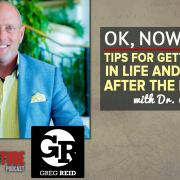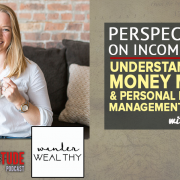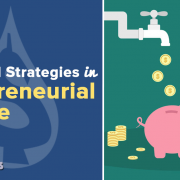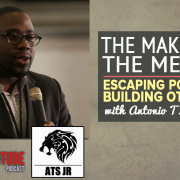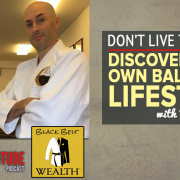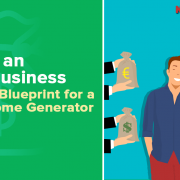This past week I had another chance to go to a business accelerator event here in Indy. This one was hosted by Techstars, who helps sports based businesses with entrepreneurial finance here in Indiana.
As I was listening to the pitches by various companies, (some I’m sure you’ll be hearing about soon in your everyday life!) I started thinking about how some of them had seen such great success in fairly quick periods of time.
Not only were there founders from these various companies in the room, but they were joined by representatives from sports partners from around the city. This included the Pacers, the Colts, Indiana Sports Corp, the Indianapolis Motor Speedway and others.
Soon I started thinking about a common connection of the talent I saw in the room. The success here was different than you hear about from the online entrepreneurial world.
The companies in the room were talking about sustainable growth and building opportunity and jobs in the community. Online, you hear more about “earn $5k in your first month doing…”.
In short, it’s looking at long term decisions yielding true wealth vs short term hustle.
And, really, I think successful online entrepreneurs are doing their followers and students a disservice. On top of how to create income online, they should also teach them how to leverage the funds they already have to keep growing!
The Hustle Approach to Finances
When we think of online business, many of us think of 24/7 hustle. We think if you’re not working, than you’re limiting yourself. Why hang out with friends and family when you should be out there making content or the next deal? It’s only when you’ve been successful doing these things that you’ll have your Ferrari and nice high-rise apartment.
So go out and get it done!
Well, for one, that mentality doesn’t necessarily apply to everyone in business. There’s people who aren’t the best hustlers, but they’re great at making the hustlers around them more efficient.
And, two, this thought process suggests that you can always outearn any financial issues that you’re having. If you just bring in more income, you’ll be richer.
That isn’t necessarily the case.
In fact, I’d say that more often than not, when people earn more, they’ll spend more. And if your goal is to be wealthy in all aspects of your life, this method isn’t going to get you too far.
That said, there’s other bad financial decisions a business owner can make. So let’s take a look at those before we start improving our decision making.
Bad Entrepreneurial Financial Habits
When it comes to where people go wrong with their finances, there’s a few that are pretty widespread. Here’s a few examples:
No Personal Organization
I can’t tell you how many times I’ve met first time entrepreneurs who don’t know anything about keeping records of their business. They don’t have a system for receipts, they don’t have a business banking account, and really, they’re not sure what their actual profit is.
No Tax Strategy
So, of course, because they’re not actively keeping track of their expenses and profit, there’s really no existence of accounting. So, everything gets cramped up to the last 2 or 3 weeks before the yearly tax deadline. And really, that makes things so much more stressful than it needs to be.
Money Is Earned to Spend
On the podcast, one of the questions I occasionally ask the rapid fire question segment is “What is something that all high school students must know?”. Often, the response is something to do with the management of finances.
We live in a world where we’ve grown up with media telling us to “Buy New, Buy Now”. Consumerism is king. If you don’t actively participate, you’re not part of the “in crowd”. So without financial education in schools, thinking that you have to keep up with the Kardashians is pretty prevalent.
As I’ve found out, wealthy people and successful entrepreneurs know how to create cash flow, but they also know how to manage their finances.
Changing Your Financial Paradigm
If any of the above sound like habits that you use in your business and life, it might be time to make a few tweaks.
Here are a few basic concepts I’ve learned about managing wealth.
Think of Money as Water
When I think about money, I look at it as a resource. In fact, I look at it like I would water in a post-apocalyptic world like you’d find in The 100 or Mad Max.
In that type of environment, water is more than just water. It’s a commodity. And because water is vital to life, clean water is going to be in short supply. Just like money is today for so many people.
If we had a way of providing clean drinking water in that world, we’d have the potential to be on the top of society.
Same thing is true with your business and its ability to make more money at will.
With that type of mindset, I think it’s easier to get a grasp on how money should be used. Here’s a couple of habits you can practice to be more successful in this arena.
Keep Track of It
If we’re looking at money as a resource that we have to be smart with we need to have metrics on where we’re at any specific time. In our analogy, we need to know how much is going out to the market. We also need to know if anyone is stealing any.
So with that in mind, it’s important that we get used to regularly checking our bank account. On top of that, we need to keep track of income and expenditures.
Get used to asking yourself and tracking:
- How much do we plan to make versus how much we actually did.
- How much do we predict to spend versus how much we actually did.
Cut things out when necessary.
Build Up a Reserve
If you’re the person in charge of delivering clean water to a community in this new world, you might want to consider something.
What if there’s a problem in getting the water? What if the rain doesn’t fall or the wells don’t work? How long does it take for you and the leaders of the community to start growing concerned?
If your business functions on the funds that you get directly from income, then you might have a potentially huge problem. Be prepared and build at least a month’s reserve of cash for emergencies. Or even better, perhaps 90 days or more. The bigger the reserve, the more insurance you give yourself to be able to dig yourself out of a bad situation.
However, just like water that sits in a reservoir or lake, if money isn’t moving, it’s not doing you any good. Naturally, if water is stagnant, then it tends to go bad. A great example of this is the Salton Sea in California. However, if there’s inflow and outflow of water such as a river, then the water is useful for sustaining life.
Same thing for money. If money is stagnate, then we tend to get overprotective of that money. Being frugal and smart with money is one thing. Being a miser and potentially those around you miserable, is another. You don’t want to be a Scrooge from a Christmas Carol.
Leverage Your Position
As this successful water provider, you’re doing your job well when everyone is getting an adequate supply. If people feel like this isn’t a problem, then it’s one less stresser in their life. Heck, the more they have, the less they think about it.
What if your community has such a huge reservoir of water that you can start using it to trade with other communities who might not be so lucky?
At that point, you’re leveraging your position with the excess of your resource to get things in return. Sure, you might not have as much water left over in your reserve, but you are gaining things in exchange for it. Which those might be more valuable in your own community than water.
In our business, it’s a bit more simple. The more money we have in reserve, the more options we have. We need to know the difference between liabilities (fancy cars, eating out, partying, etc.) vs assets (using better tools, hiring a team, etc) when it comes to making more money. The more assets you have, the greater potential we have for generating more income.
Action Steps
So, to help you make this transition, I have a few recommendations for you to start getting better at finance.
The first thing I’d recommend is read or listen to Rich Dad, Poor Dad. And really think about anything that the author Robert Kiyosaki has to say. He has a good enough track record that students at Purdue’s entrepreneurship department used his info in creating their own businesses when I was there.
Next, I’d recommend getting a business bank account. Keep business money separate from your personal money.
Also, I’d develop something (maybe even a spreadsheet) to monitor your cash flow. Again, how much are you forecasting yourself to earn? How much did you earn in comparison? Same thing with expenditures? Where can you cut out if necessary? This information is great to have if you ever hire an accountant to help.
Finally, I’d look into subscribing to Quickbooks and anything else that might make your accounting easier. If you don’t have a business credit card that you put all your expenditures on (which I highly recommend) then you’ll need to manually keep track of receipts. You can do it as you go with Quickbooks, but if you like waiting to the end of the month, you can use a service like Shoeboxed to do it all for you.

